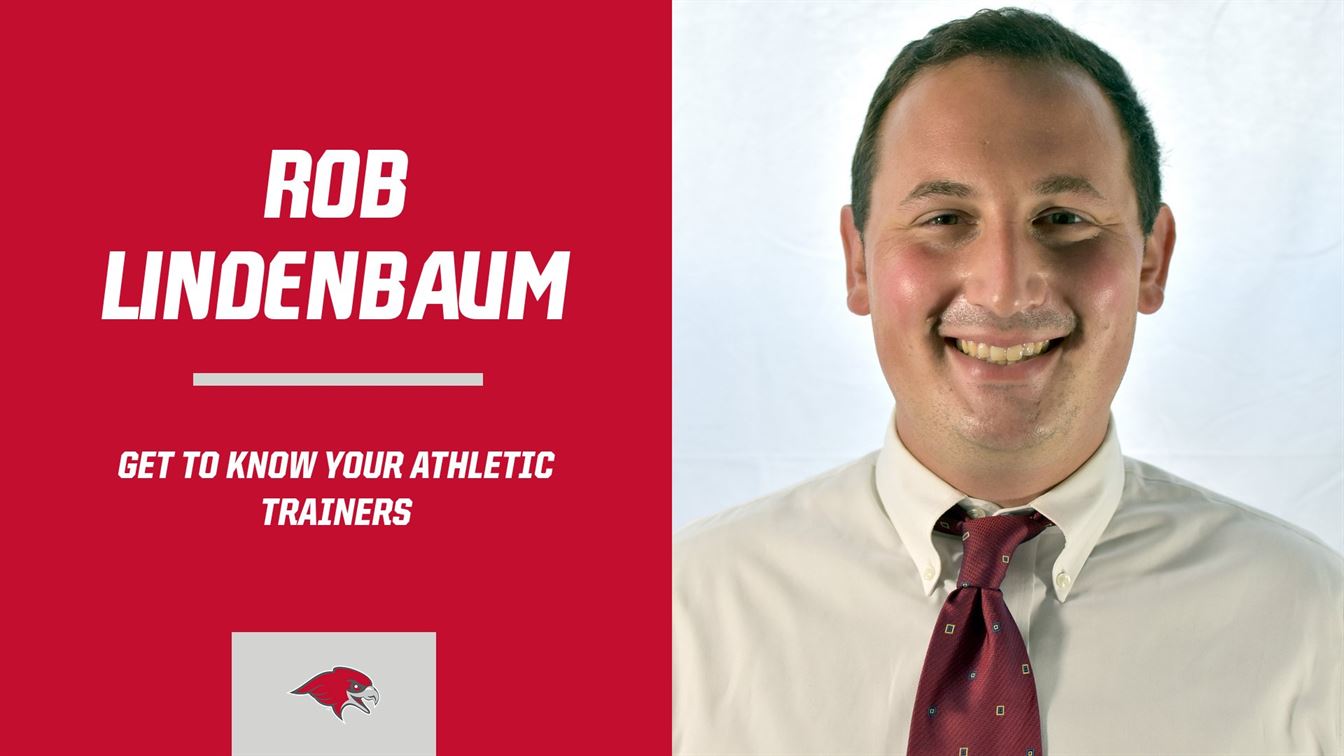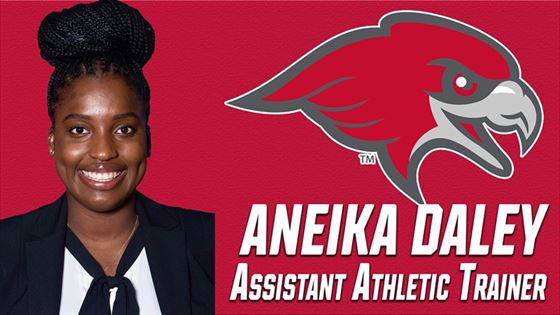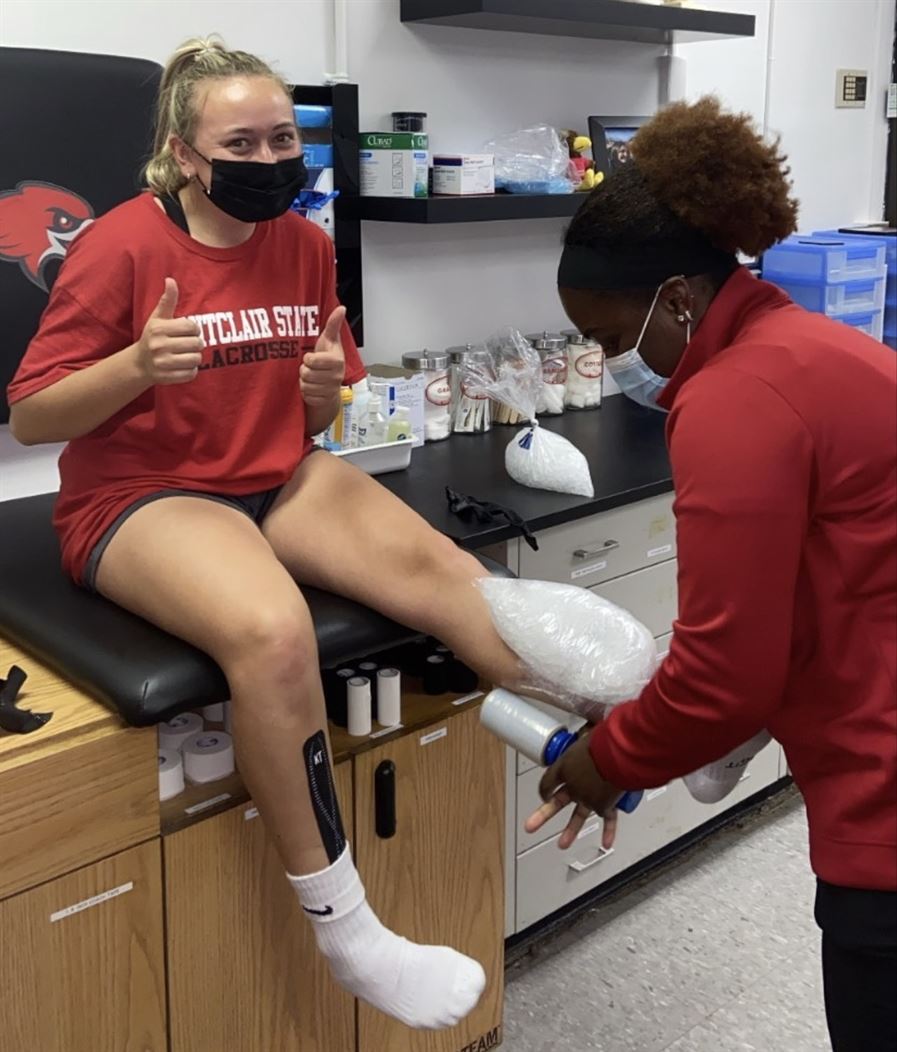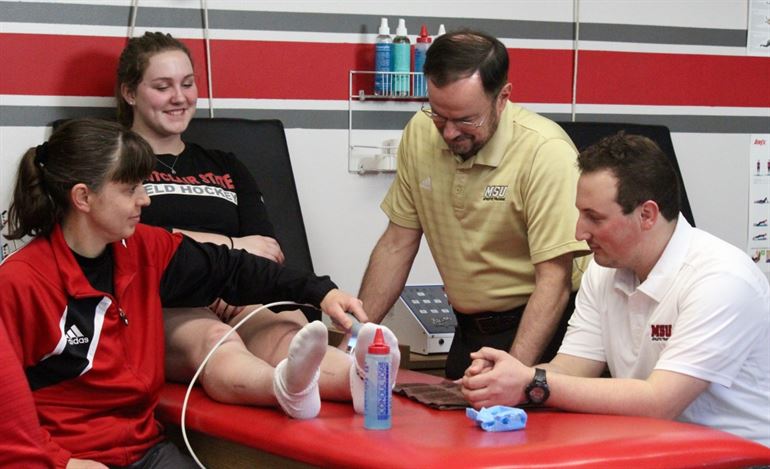All of the cameras filming the action; all of the opinions and hot takes being carried over the airwaves — everything is focused not only on the coaches running the athletic programs at Montclair State University but also on the players pursuing their passions.
But up until recently, not a lot of coverage has been spent on the individuals who help to rehabilitate, freshen up and heal the student-athletes who go out every day, improve themselves and fight for glory on the field or the court.
The athletic trainers of Montclair State athletics are a crucial part of every team. This is a major theme that Rob Lindenbaum, assistant athletic trainer and former New Jersey EMT, emphasized in discussing the importance of their job.
“The biggest thing is communication, and that goes back to how an athletic trainer has adapted over the years,” Lindenbaum said. “And, in reality, we are a part of the coaching staff.”

Lindenbaum has been a part of the Montclair State athletic training staff since 2015.
Photo courtesy of Montclair State Athletics
All athletic trainers carry a vital role of being a catalyst to these players and how they continue to stay successful. For Lindenbaum, his Red Hawk connection dates back to the beginning of the last decade.
He graduated from Montclair State in 2015 with a bachelor’s degree in athletic training, and then immediately became a part-time athletic trainer. The year after, he joined the staff full-time, and for the last six years, Lindenbaum has only strengthened his connection with the athletic department and the campus community as a whole.
“[My relationship with student-athletes] is really good,” Lindenbaum said. “[With] the administration, my relationship is fantastic. I have had no issues with the coaching staff. [With] me being one person and having all of these teams, what helps is that understanding that there is only one guy. As a coach, I get asked, ‘What do you think you want long term for the goals of the team?’ and that’s when you get a sense that you are an integral part of the inner workings and the core of the team.”
Another key component of some of the teams here at Montclair State is an assistant athletic trainer in her first year with the Red Hawks. She has already developed close connections with the students and staff of teams like women’s lacrosse, women’s soccer and women’s basketball.

Aneika Daley is in her first year with Montclair State but she has developed many deep connections with student-athletes already.
Photo courtesy of Montclair State Athletics
Aneika Daley completed her master’s degree in advanced athletic training at the University of South Carolina last May, and she was formerly the primary athletic trainer for basketball and softball at Claflin University.
Also located in South Carolina, Daley helped the student-athletes of the Division II Historically Black College or University (HBCU) get back into shape, as well as develop the coronavirus (COVID-19) protocols for the general student population.
Even with the increased stress of putting it all together and facilitating so many students and players to get multiple weekly tests, Daley is proud of the work she has accomplished there, especially with the school being an HBCU, which means a lot to her.
“For the athletes, seeing someone that looks like them and understands where they are coming from, they are able to trust me more and develop a connection with me,” Daley said. “I feel like I would possibly go back and work with another HBCU because it is a very family-oriented environment, but I feel like I get that from working here too.”

Daley’s work at an HBCU in South Carolina helped accustom her for the family environment with the Red Hawks.
Photo courtesy of Montclair State Athletics
When speaking about the main concepts of team chemistry and a family-like bond between the athletic programs at Montclair State, that same sentiment applies to the athletic trainers. Being around so many students, connecting with them and making sure they are in the best possible shape, it’s hard not to create a bond that can last for plenty of years. Daley harps on this due to her prior local experience.
“Coming into Montclair State, because I went to Kean University, which is kind of a rival for the Red Hawks, it was just [a matter of] getting used to how the people are here,” Daley said. “And now, I have developed a lot of trust for the athletes I treat, as well as the coaches, and help facilitated the growth within that [connection] for however long I am here for.”
Some of the athletes at Montclair State can speak from experience that the athletic trainers, whether they are around their respective teams once in a while or every day, are important to how the team functions.
Kelly Weckstein, a senior distance runner for the track and field team, recognizes the initiative these athletic trainers put in every day.
“The athletic trainers are so valuable,” Weckstein said. “Especially since I do track and cross country, there are a lot of times where you need ice and see them periodically because if you don’t look out for a little soreness, it can turn into something worse.”
Christian Boyle, a senior attacker for the men’s lacrosse team, has a lot of interaction with people like Lindenbaum and Daley, and for someone who just crossed 100 points in his career, Boyle is more grateful than ever for their efforts.
“In my time here, they have been extremely helpful,” Boyle said. “I’ve had bumps, bruises, tweaks, nothing ever serious, but whatever injury I have had, they have helped me out immediately. And they have always been serious and professional. After they treat me, they are back to being friendly and down to earth.”
That down-to-earth and respectful quality of athletic trainers mixed with the family bond that Montclair State teams embrace is what makes the athletic trainers on campus so special and important. People like Lindenbaum and Daley have made it especially clear they do deserve more appreciation.
“It would be nice as a medical profession [to get a little more appreciation], [considering] you need a higher degree to do [this] and need to continue your education to do [this],” Lindenbaum said. “People say ‘Oh, they just do ice.’ There’s a lot more we do. Typically, the last thing I do is give ice. Most of the time I am rehabbing someone or providing one-on-one mental health care. And it’s not just athletic training. We are all one unit trying to achieve that individual’s main goal of athletic performance.”



